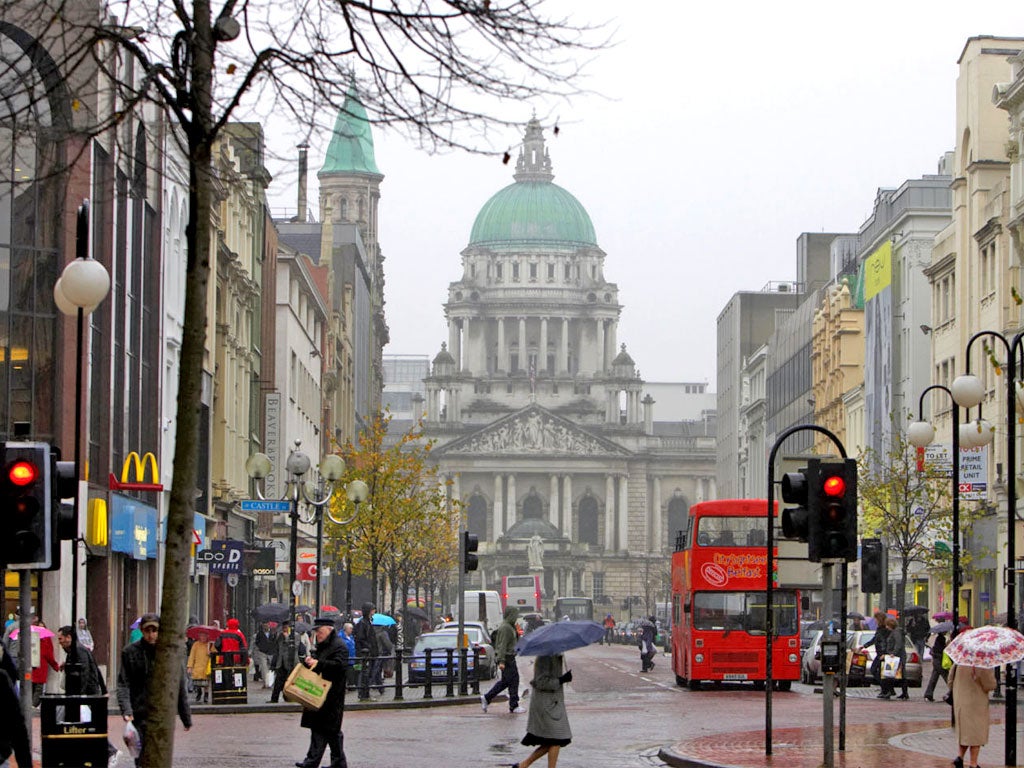Q: How happy is Britain? A: 7.6 out of 10
National survey reveals that those living in Northern Ireland are the most content

Your support helps us to tell the story
From reproductive rights to climate change to Big Tech, The Independent is on the ground when the story is developing. Whether it's investigating the financials of Elon Musk's pro-Trump PAC or producing our latest documentary, 'The A Word', which shines a light on the American women fighting for reproductive rights, we know how important it is to parse out the facts from the messaging.
At such a critical moment in US history, we need reporters on the ground. Your donation allows us to keep sending journalists to speak to both sides of the story.
The Independent is trusted by Americans across the entire political spectrum. And unlike many other quality news outlets, we choose not to lock Americans out of our reporting and analysis with paywalls. We believe quality journalism should be available to everyone, paid for by those who can afford it.
Your support makes all the difference.According to the Office for National Statistics (ONS), 7.6 out of 10 is the official rating for how happy we are.
For the first time yesterday, the Government attempted to answer the question of exactly how contented the nation is – and revealed some thought-provoking findings in the process.
Collected from interviews with more than 80,000 people across the UK the "National Well-Being Programme" reveals that people in London and the West Midlands are less satisfied with their lives and more anxious than in any other part of the UK. In contrast those people living in Northern Ireland appear to be the most contented.
The findings also suggest there is a national mid-life crisis. Overall we start out adult life happy, get progressively more dissatisfied as middle age sets in before finally becoming more content in our twilight years.
The statistics are the first significant tranche of data from the programme, launched by the Government in November 2010. Supported by David Cameron, the project is an attempt to measure more than GDP in assessing the success of the nation, and, the Government claims, will eventually be used to help determine national policy.
Some of the findings show some clear cause for concern. There is, for example, a marked variation in the happiness among different ethnic groups.
People of Pakistani, Bangladeshi or black-African/Caribbean origin are considerably less happy than those of white, Chinese or Indian origin.Equally, there is a clear correlation between successful employment and happiness.
Those people with professional jobs tended to be happier than those without and the effect of long-term unemployment on happiness was strong. And in a move which will please the Tory right the data suggests married couples are more satisfied with their lives than those who cohabit.
Women are generally more satisfied and happier, yet also more anxious than men. People were asked four questions: how satisfied they are with their lives; to what extent they feel the things they do in their life are worthwhile; how happy they felt yesterday; and how anxious they felt yesterday.
Estimates were based on a 0 to 10 scale, with 0 "not at all" and 10 "completely". The overall life satisfaction rating for England was 7.4 out of 10, with 75.5 per cent of people scoring seven or more out of 10.
People in Northern Ireland were, on average, the most satisfied, scoring 7.6 out of 10, compared with 7.5 for Scotland and 7.4 for both England and Wales. Northern Ireland also had the highest scores for the "worthwhile" and "happiness yesterday" questions.
In England, the average answer to whether their life was worthwhile was 7.4 out of 10, while the average answer for whether people were happy yesterday was 7.3. Those who were married scored 7.7 for satisfaction, compared with 7.5 for those living together, 7.3 for those who are single, 6.8 for widowed people and 6.6 for divorcees.
People with children also felt more worthwhile. Those with no offspring scored 7.6; those with one child scored 7.7; and those with two scored 7.9. People with four children also scored 7.9, while those with three or those with five or more scored 7.8.
But the one question the survey is yet to answer is the eternal one: can money buy you happiness? The statisticians have yet to compare income levels with happiness. However, according to the ONS, it is on their to-do list.
Subscribe to Independent Premium to bookmark this article
Want to bookmark your favourite articles and stories to read or reference later? Start your Independent Premium subscription today.
Join our commenting forum
Join thought-provoking conversations, follow other Independent readers and see their replies
Comments